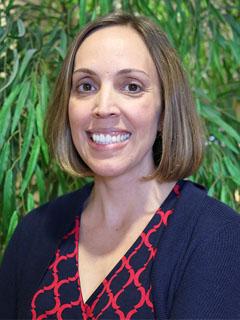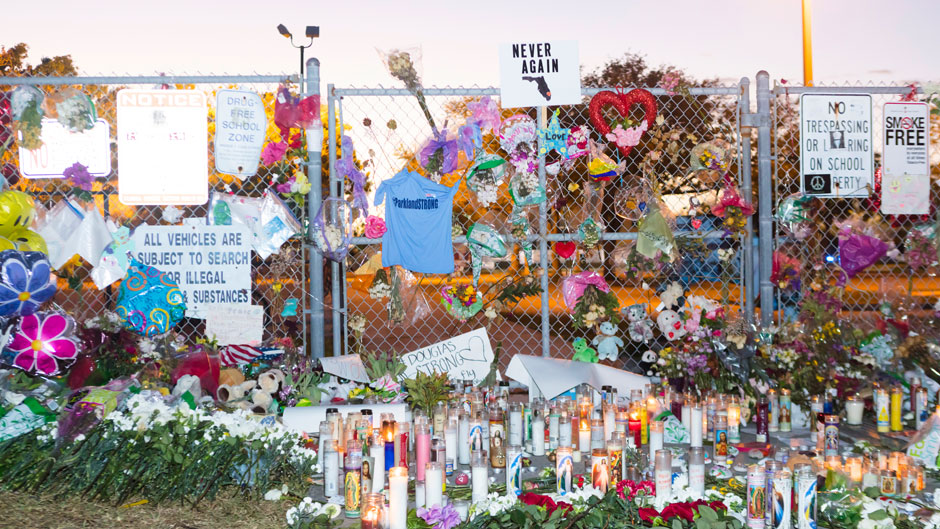In the past week, the suicides of two students connected to the mass shooting at Marjory Stoneman Douglas High School in Parkland and the father of a child killed at the Sandy Hook Elementary School in Connecticut, have shocked and saddened many in the South Florida community and beyond.
To understand and prevent similar tragedies, News@TheU reached out to associate professor of psychology Amanda Jensen-Doss, director of the University of Miami College of Arts and Sciences psychology department’s child and family division, and head of the Child Implementation and Effectiveness Lab (CIELO), which uses evidence-based strategies to help improve mental health for children and adolescents.

There have been reports of children who witnessed the Columbine High School shooting in 1999 still struggling with memories of that day. Is there a history of post-traumatic stress disorder (PTSD) from survivors of mass shootings in general? Can you explain why these two young people chose to take their lives a year later?
People can have a range of reactions to traumatic events like shootings, including PTSD, depression, substance use, and anxiety, although many people recover after the initial stress of the event and do not have long-lasting symptoms. It is difficult to know for sure why these young people ended their lives a year later. We know that the first anniversary of an event is often very difficult for survivors, so it may be that the recent anniversary increased their distress. It also can be difficult for survivors to hear about similar incidents, so it is possible that the recent mass shooting in New Zealand caused them distress. Finally, it is possible that the second teen felt more able to take his own life after hearing about the first death, or these suicides may be completely unrelated to any of these things.
What are some signs that a child/adolescent may be struggling with PTSD or depression following a violent event, such as a mass shooting?
Signs of PTSD include feelings of anxiety, strong reactions to or avoidance of reminders of the event, jumpiness, difficulty sleeping, and poor concentration. Signs of depression include sadness, irritability, and/or loss of interest in things the child used to enjoy, accompanied by other symptoms, such as sleep difficulties, change in appetite, guilt, or hopelessness. The National Mass Violence and Victimization Resource Center (NMVVRC) and the National Child Traumatic Stress Network (NCTSN) have a lot of resources to support parents and schools after a violent incident.
Are there strategies that survivors and/or schools can use to overcome triggers that bring back the trauma of a situation?
The most important thing after a traumatic event is for individuals to feel safe and supported. This means trying to keep them in their routine as much as possible, and letting them talk about what happened at their own pace. Often, people can be eager to just “move on” from an event, but avoiding talking about it is thought to keep people from healing.
How can parents get their own adolescents to talk about their feelings, so that the parents are aware of any mental health issues and can get the help their child needs?
The most important thing for parents to do is to let their adolescents know that they are there for them, and that they can talk to them about the trauma. Often, teens will not want to do this, so parents should keep an eye out for big changes to their child’s school work, social life, sleep, and/or appetite. When in doubt, it never hurts for parents to consult with a doctor or a mental health professional if they are worried about their child. The Miami Herald has compiled a list of local resources for people in Broward County, and the website Effective Child Therapy has resources to help locate mental health professionals nationally.
How can professors, teachers, resident assistants, counselors, and employees of places that serve adolescents support these students (and others who have witnessed shootings), so that they feel comfortable asking for help?
A lot of the same principles apply to professionals that apply to parents: being open and willing to listen, while keeping an eye out for concerning changes is the best way to go. The NMVVRC and NCTSN websites also have resources geared toward schools that are very helpful.
Learn more about the mental health resources available to students through the UM Counseling Center, as well as faculty and staff through the Faculty and Staff Assistance Program.

